Walter Scherg, general manager of Smart UK, told his staff to carry hunting knives in the early days of the brand's existence on these shores.
It is a figure of speech he uses in recalling the formative period for the company, but it sums up the 'sent into the wilderness' feel of the operation when DaimlerChrysler, the brand's owner woke up to the growing popularity of the two-seater micro car in this country, which left egg on the faces of the marketing moguls at the company's Stuttgart HQ.
Today Mr Scherg is at the helm of the fastest growing car brand in the world. In the UK the decision to sell Smart through Mercedes-Benz franchised dealerships is both a sign of the growing demand for the cars amongst the motoring public and of an acceptance of its importance in the DaimlerChrysler portfolio.
The strategy was announced at the beginning of November, with the first MB-UK centres selling Smart being B&K Thomas, Rycroft and Jacksons, putting Smart on sale in Nottingham, Stockton-on-Tees, Poole and the Channel Islands. It was the first exposure of the brand outside its sales centres in London, Manchester, Birmingham and Milton-Keynes. Then, last week, Smart announced its cars would be sold by Mercedes dealers in Southampton, Tonbridge, Glasgow, and Dartford.
He is unashamed of his goal to expand increase the presence of Smart in the marketplace as fast as possible. He said on the recent announcement: "Our key objective is to bring the joy of Smart ownership to many more customers in the shortest possible timescales."
By the end of next year he wants to see Smart available in up to 40 sites - its own and sharing space in MB-UK outlets - in the UK.
The direction hasn't always been so 'full steam ahead', as Mr Scherg explained.
In early 2000 the powers-that-be at DaimlerChrysler had decided the UK was not ready for Smart; the consumer was 'too conservative'. Then UK consumers stuck two fingers up to Stuttgart and with the other hand reached for their wallets.
"Studies had shown that the UK wouldn't be a market for the Smart. People were too conservative and liked bigger cars - and they would never touch anything with lefthand drive. But then we realised there was a huge growing 'grey' market for our cars. Customers soon began demanding servicing facilities," Mr Scherg said.
On October 17, 2000 Mr Scherg began the task of establishing Smart in the UK. "I had a blank sheet of paper and two staff," he said. "I felt like a little kid with a pet project. But the task was enormous. We had to set up five sales' centres, service facilities and a stand at the Birmingham motor shown and create a website without delay."
He also recruited 100 people in eight weeks. But despite the pace Mr Scherg was determined to do things differently. Interviews of potential employees were conducted in Smart cars, where the applicant's reaction to being invited to get in the driving seat was crucial to their chances of getting the job.
"I needed people to be hunters, they had to carry hunters' knives and go and find customers," Mr Scherg said.
He also had customers that were on his trail. "They were asking for a service and wanting to make complaints - we were beginning to run around like headless chickens. We needed to get people focussed on their targets."
As a result, Mr Scherg called in Catalyst, a UK firm specialising in helping companies 'accelerate the growth of their business'. Its client list includes DaimlerChrysler, Hyundai, the AA and Skoda.
A 100-day programme was drawn up for the Smart team. "It focussed on getting the car to market and make the brand as successful as it is in mainland Europe. Bringing in Catalyst was one of the best business decisions I made," Mr Scherg said.
He said the benefits of working with Catalyst can be seen in the sales results. "In the first three months we sold four cars a day and 12 months later it's 20 cars per day."
The key questions Catalyst asks are: where will you make the most profit in the next 12-18 months, who are the best people in your business and are they connected to what the company is trying to achieve?
Holding interviews in cars was one way to achieve the 'connectivity'; another was plastering the Smart branding around the call centre - or customer assistance centre in Smart-speak – which handled the complaints, despite it being an outsourced operation.
But it still wasn't all plain sailing.
Mr Scherg said: "Our priorities were to develop the brand in-line with our capabilities and giving the customer access to us through simple processes. We made some mistakes. At our sales centres we were promising to deliver cars in five days, but we were delivering them in 10. We now say 12 days and deliver them in 10."
A 'focus group' of 50 people was let loose on the Smart website in order to maximise customer ease of access. A testament to the quality of www.thesmart.co.uk is that in August Smart was able to claim a UK first - every car sold was purchased over the internet.
The virtual Smart sales centre is used to process all orders for the two-seat city car, including those placed at the five regional sales centres.
Customers can order their car, get insurance cover, arrange finance, pay online with a credit card, and arrange delivery.
Smart claims it is the only website where you can 'build and buy' a new car, entirely online.
Now, the emphasis for Smart is on building the relationships with the MB-UK dealers.
Smart expects to have a total of 20 outlets by the end of the year. So far this year 3,600 Smarts have been sold. The target is more than 5,000, for 2002 its more than 10,000, 2003, more than 15,000.
"We thought they would be reluctant to sell Smart, but the opposite is true - they're desperate to get Smart. They see the success the car has had in Europe and the opportunity to attract a different customer portfolio. Yet both Smart and Mercedes are classic, premium products."
Mr Scherg says a deciding factor in where they look to MB-UK sites to sell Smart is location.
"Looking at where in the country we're getting customer inquiries via the website and the 'grey' market hotspots we've identified a line across the country, roughly from north west to south east where we need to have sites. After a year working in the UK we know where our best prospects are and that's where we want the 20 retail outlets," Mr Scherg said.
Mr Scherg has also devised an unusual method of introducing the brand to new dealer partners, called the Smart Box (pictured).
##Smart Box--left##
Looking like a filing box, it contains everything to do with the brand, from the way it must be marketed to head office contacts. For example, the marketing requirements include the stipulation that the word Smart must be written in 'Korean New' font and must always be in lower case, with a triangle incorporated in the 'a'. Mr Scherg calls the Smart Box a 'lean' way of introducing dealers to the brand.
Establishing bricks-and-mortar sales centres is traditional, but Mr Scherg is chasing quirky ways of bringing Smart into our lives. He is in discussions with NCP on a half-price parking offer and with a number of companies on half-price car wash deal which he hopes will be concluded next year.
"I'm always looking for new ways to bring Smart to people's attention, as long as they are car related," Mr Scherg said.
Mark Reynolds, Catalyst's managing director, summed up Mr Scherg's achievement: "He didn't speak English, he worked for God in Stuttgart who was then told to go, with just three staff, to a place that he'd been told didn't want his product and sell 3,000 of them in lefthand drive. It was a daunting task for even the bravest. But he's achieved the goal in 12 months."

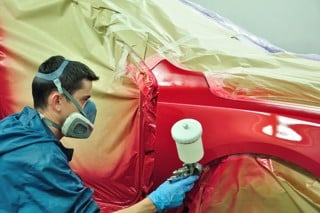
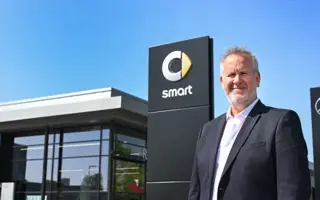
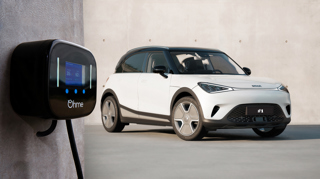
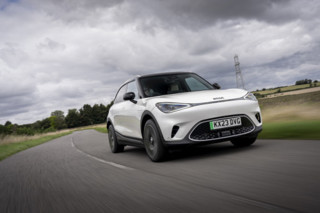
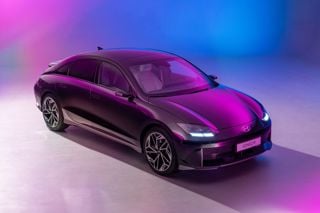












Login to comment
Comments
No comments have been made yet.